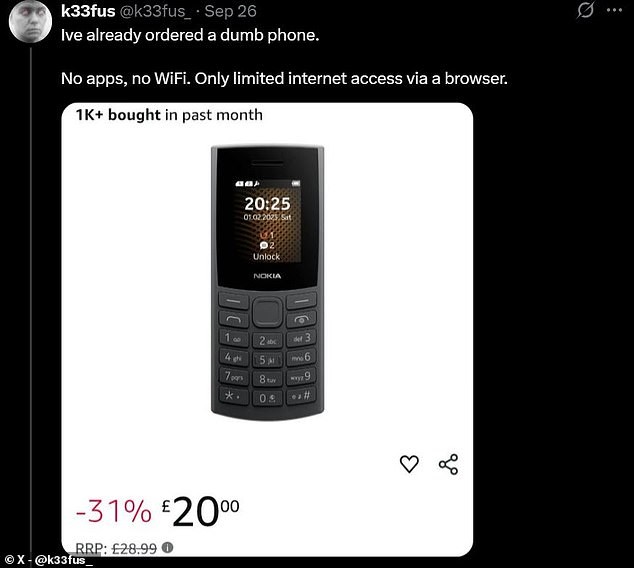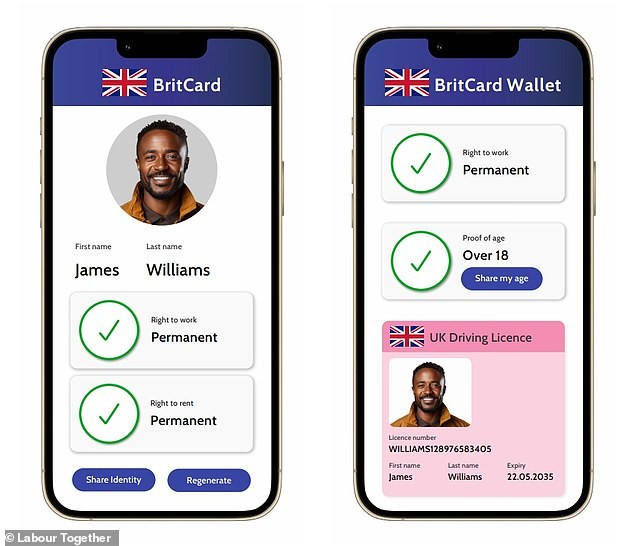Brits vow to swap smartphones for brick phones as Labour's digital ID plan nears a dystopian future
In a world where smartphones are packed with facial recognition, multiple cameras, and wireless charging, some Brits are longing for the simplicity of the late‑90s. The catalyst is Labour's plan for a mandatory digital ID card for every UK citizen—an idea nicknamed the Brit‑card that would carry your name, date of birth, a photo, and details about your nationality and residency. Crucially, the plan would apply to workers by 2029. Supporters say it would crack down on illegal working and make identity checks easier. Critics warn it could usher in mass surveillance and erode civil liberties. More than 2.5 million people have signed a petition against digital ID, and social media is buzzing with memes about reverting to old Nokia models to dodge the app. On X, users have circulated memes and stark reminders: “Can't make me have digital ID if I have a Nokia 3210.” Another posted, “There's only one way to deal with digital ID. Everybody revert back to the Nokia 6210.” And a third quipped, “Looks like Nokia 402s are back on the menu, boys!”

In This Article:
What the Brit-card is and how it would work
The Brit-card would include your name, date of birth, a photo, nationality, and residency status, and could be downloaded from a government app. The digital ID would be stored on the smartphone itself, just as contactless payment data and NHS app data are stored today, and it would be used to prove your right to live and work in Britain. Practically, employers would check the digital ID during recruitment, replacing some physical documents. The government says there will be inclusive routes for those who cannot use a smartphone, and residents would not be required to carry a digital ID at all times. The police would not be able to demand to see your digital ID beyond ordinary ID checks. The core questions remain about how the system would actually function and what privacy protections would exist. The details are still under consultation.

Public backlash and the rise of 'dumbphones'
Public reaction has surged online, with memes and warnings that such a card could track and control daily life. Several posts highlighted the nostalgia for classic Nokia models: "Can't make me have digital ID if I have a Nokia 3210," one user wrote. "There's only one way to deal with digital ID. Everybody revert back to the Nokia 6210," another teased. And a third joked, "Looks like Nokia 402s are back on the menu, boys!" Some social-media users claim they have already ordered dumb phones with no apps or Wi‑Fi to avoid downloading the ID app. Yet this debate is more than nostalgia; it has become a political flashpoint about privacy, state power, and civil liberties.

Reality check: what actually changes with digital ID
No one will be required to carry their digital ID with them at all times, the government says. The ID would be used to prove the right to work, and employers would check it rather than other documents. You would still need to prove identity when starting a job, but the plan would not eliminate that obligation. The government also says there will be inclusive routes to obtain the digital ID for those who cannot use a smartphone; the exact options are still under consultation. In short, this is not a universal “always‑on” ID you would carry everywhere. The details are still being worked out.

Global context, history and the critics' verdict
Many countries already use digital IDs, including Estonia, Spain, Portugal, Germany, India, the UAE, and France. Critics warn such systems threaten civil liberties and privacy, turning nations into a “papers please” society. Gracie Bradley of Liberty described the proposal as likely to be more intrusive, insecure and discriminatory than the Labour government’s failed 2006 plan. Historically, Labour flirted with identity cards. Tony Blair proposed compulsory IDs, but the scheme was scrapped by the Tory‑Liberal Democrat coalition. The last Labour government issued around 15,000 ID cards before it was scrapped in 2011. Penalties in the past included fines up to £1,000 for failing to update information or surrender a card. The exact approach for refuseniks under a new plan remains unclear. Where this goes next depends on ongoing consultations, but the debate already tests the balance between security and civil liberties in Britain’s identity future.


